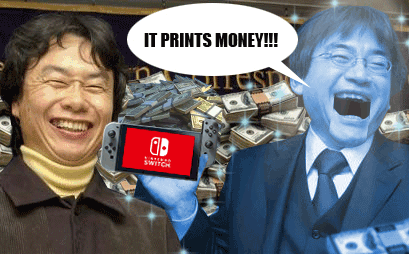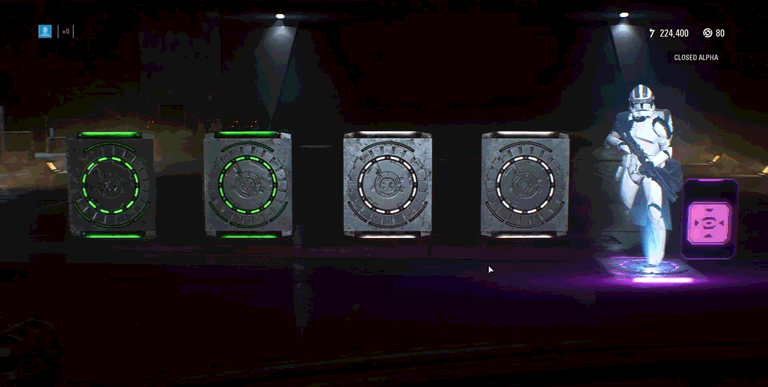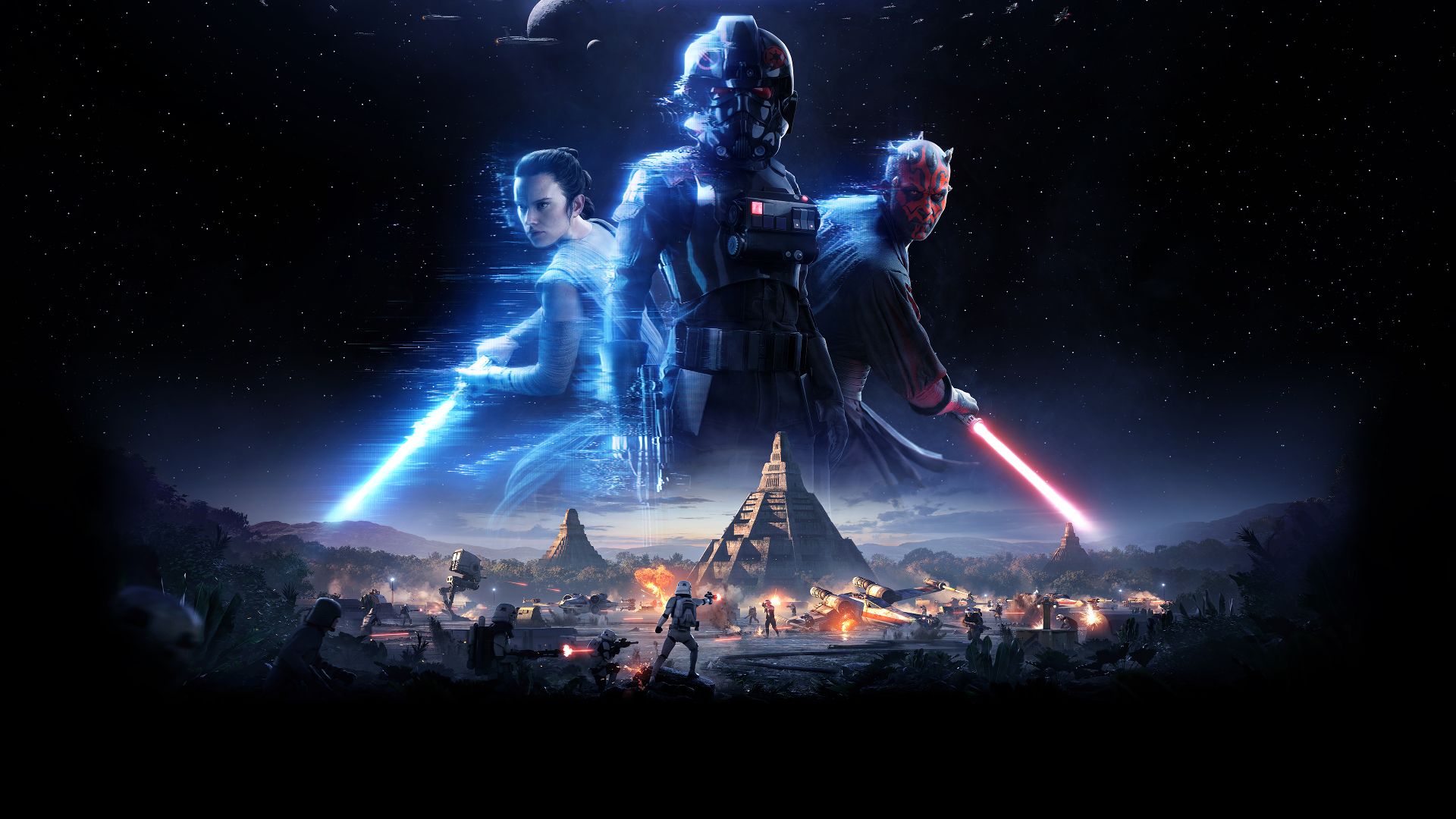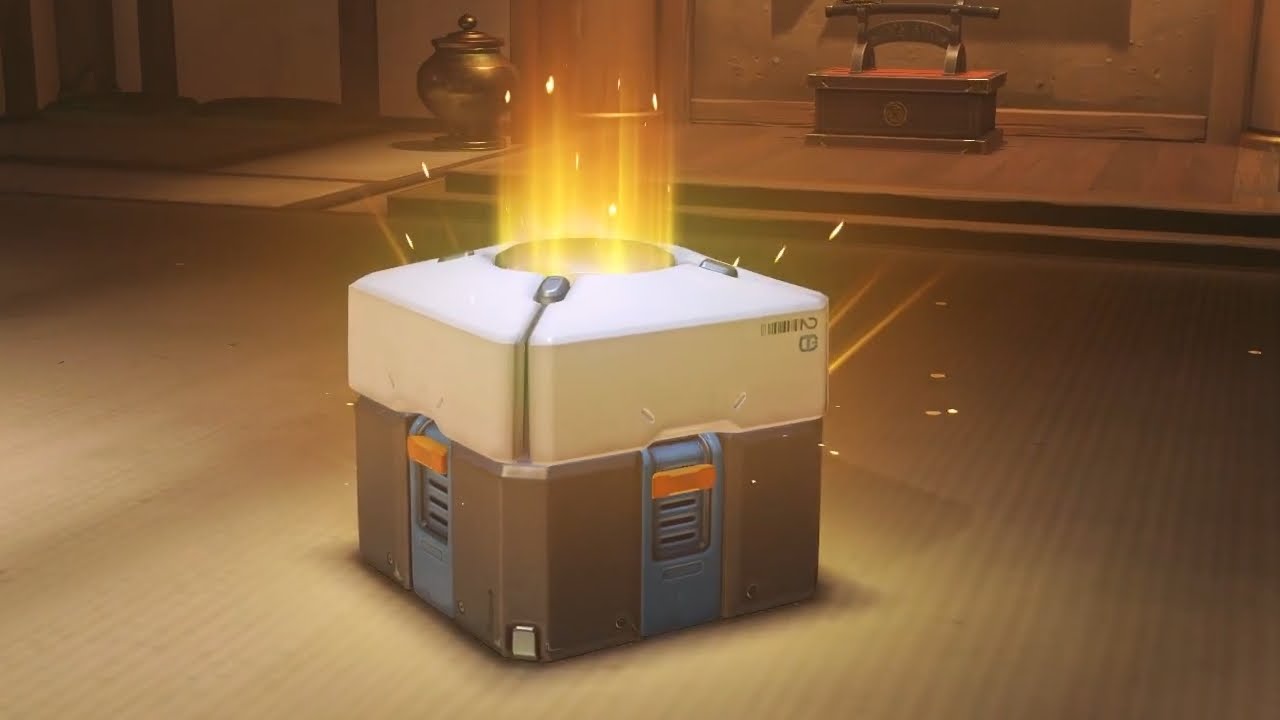I’m surprised about both of these stories for different reasons.
Update – 2/2/2018
So we all failed to note one thing about the entire lootbox backlash to Star Wars Battlefront 2: EA wins either way.
Here’s the thing: If gamers didn’t give backlash to EA in such force that sales were impacted, then the game would have sold as expected, and EA would be justified in continuing their current practices.
As a result of the backlash, EA has noted lower sales of Battlefront 2, and we figured it would send a message. It hasn’t. In fact it’s response to investors was that in-app purchases will return as previously noted, but now with the added note that those purchases can be used to make up for the lost sales, justifying their inclusion.
Personally I can’t fault that logic. That is actually sound business practices there, so well done to them on that. The downside is we end up in the potential situation we began fighting back against in the first place-
If EA knows micro-transactions will cut into sales, but make up the lost revenue, why wouldn’t they keep them in, when the alternative is losing that revenue AND sales?
In response their stock has hit all time highs.
As I said, sound business sense to cover for potential losses but…I guess we can hope the big stink that was raised about lootboxes leads to some legislation huh?
Original Story
Let’s start with Nintendo, namely 3DS. It’s sales are down year on year, yes, but it’s also nearly 7 years old. Pokemon Ultra Sun and Ultra Moon sold 7.17 million units. So good stuff for the budget entry into the ecosystem.
The real story is the premium system: Nintendo Switch. Within just shy of 10 months, as of December 31st 2017, Switch has outsold the first 12 months of the PS4, at 14.86 million units. That is firstly maddening to see, but also shows the 3 month holiday period accounted for half of the lifetime sales so far.

So in doing so, it has also surpassed the Wii U, so comparisons can finally stop on that front. The system has shown itself to be a viable platform for many developers, and I can only hope this continues. Next stop is the 21 million of the Gamecube!
On to software however, we see a few interesting pick ups. Firstly that Xenoblade Chronicles 2 has sold 1.06 million in just a month, placing it firmly in the heights of its franchise, an excellent result for a release many people thought flopped due to low sales charts rankings.
Next is Mario Kart 8 Deluxe, a re-release of a Wii U game that many seemingly didn’t want, having already owned it, logically, but one I and many others assumed would do well due to now hitting a much larger market, many of whom simply won’t have played Wii U games. Evidently the latter is true as the release has hit 7.33 million units and is well on its way to surpassing the original Mario Kart 8. As an evergreen title, it will surpass that, and shows that yes, if a port goes to a new, bigger audience, it probably isn’t a bad idea, you know?

Finally of note is Super Mario Odyssey, selling 9.07 million units in just two months, and becoming the top-selling software on the system, and the 2nd best-selling Mario title ever in the main series, only behind New Super Mario Bros. Wii. Could it beat out that game? Possibly, we need to see if it remains as evergreen, as 3D Mario typically falls below 2D Mario.
Full financials are available here: Source
But what really gets me is how Mario Odyssey performed compared to another game of note…

It’s time to talk about everyone’s favourite game ever: Star Wars Battlefront 2. EA seems disappointed by its performance, namely how if we include digital sales to physical shipped copies to retailers…it’s around 7 million units. It’s going to fall well below what they told investors it would hit by March, as well as falling below the prior Star Wars title.
So for reference, Battlefront 2 fell below a game like Super Mario Odyssey, that was only released on a single platform. That’s insane.
But the proof is in the pudding. Legislation is being looked at for lootboxes, because of course they are, and EA is blaming consumer backlash. Not only that, Bioware developers are feeling stressed over the inevitable forced monetization EA will make them include in Anthem, a game that seemingly could spell the end for the studio, understandably given EA’s record.
Micro-transactions are to be reintroduced to the game in the coming months “When the time is right”, but EA is already feeling the burn. Gamers weren’t happy, investors won’t be happy.

Sadly I do feel EA will learn nothing from this, but if nothing else it acts as a sign.
With the previous comments of people not wanting single player games, games costing too much to make thus mandating additional, aggressive monetization and the like, to see Super Mario Odyssey, on a system EA dismissed no less, outsell the game and probably due to less extravagant spending by Nintendo, make more money than Battlefront 2 has in all likelihood, is a huge slap in the face to EA.
Words cannot accurately describe how EA must be feeling right now, but it proves that gamers just want good games, especially from Star Wars, and even stuff like cosmetics can be done for free, and games don’t need to cost as much as EA pumps into them.
It’s a sign that the AAA business model is inherently flawed and self-destructive. Where one company prospers by tightly controlling expenditure and not pursuing aggressive monetization in full price games, another gets knocked back for saying that model wont work, and then seeing the alternative is more damaging, at least in the short-term.
It’s that short-term that needs to be taken away from this, as that is the primary interest of a majority of investors: Short term profits. In the long-term EA is likely to be fine, but in the short term the fall of Battlefront 2 to something like Mario Odyssey, a business model EA has repeatedly dismissed, just shows what the market wants.
Make good games, and they shall come. Don’t be stupid with your games and licenses, and they shall come. Then everybody wins.












